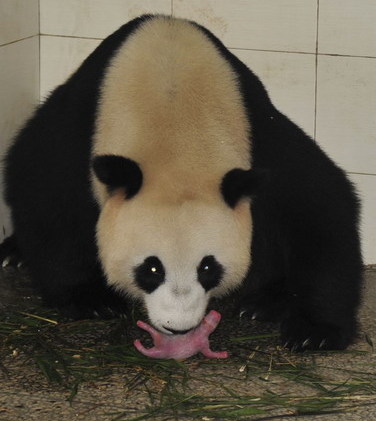Society
Scientist on mission to clone endangered pandas
By He Dan (China Daily)
Updated: 2010-08-11 08:09
 |
Large Medium Small |
BEIJING - China has been exploring every possible means of saving giant pandas, one of the world's most endangered species, from becoming extinct, even if it means resorting to cloning them.
Chen Dayuan, a senior scientist who specializes in cloning at the institute of zoology in the Chinese Academy of Sciences, introduced the idea of performing cloning techniques on giant pandas in 1998.
|
|
The move was reported as one of the 10 biggest achievements of science and technology in 1999. It won an award of 6 million yuan and further funding of 5 million yuan for the project from the Ministry of Science and Technology.
According to the report, two embryos were created from a surrogate mother cat who became pregnant after being injected with a blastocyst, but the experiment was abandoned after the cat died of pneumonia.
Chen and his team then experimented with surrogacy on black bears. After three years of effort, a black bear became pregnant and the shape of a fetus could be seen on an ultrasound scan.
However, the research was allegedly suspended in 2005 because the fetus did not completely develop before the project deadline.
"Those opposed to cloning have made their voices heard throughout the research project on cloning giant pandas. Some people find cloning goes against nature, but it is actually a pioneering technology. If successful, it is a way to save endangered animals," Chen was quoted as saying in the report.
"While I agree that research on cloning is significant, it is inappropriate to use giant pandas in this type of experiment. The number of pandas is limited and human beings have yet to master knowledge about pandas' pregnancy," said Wang Dajun, a researcher at the school of life sciences, Peking University.
| ||||
There are two problems with captive breeding. Pandas in captivity are unable to survive in the wild and it becomes increasingly difficult to find suitable natural habitats for them, Wang said.
"Too much human intervention has caused problems for giant pandas. The most important thing is that we should protect pandas' natural habitats. Cloning would do little to save the endangered species," Wang added.
In response, Chen said that he was used to criticism and vowed to continue his research.
Zhao Yanrong contributed to the story.




